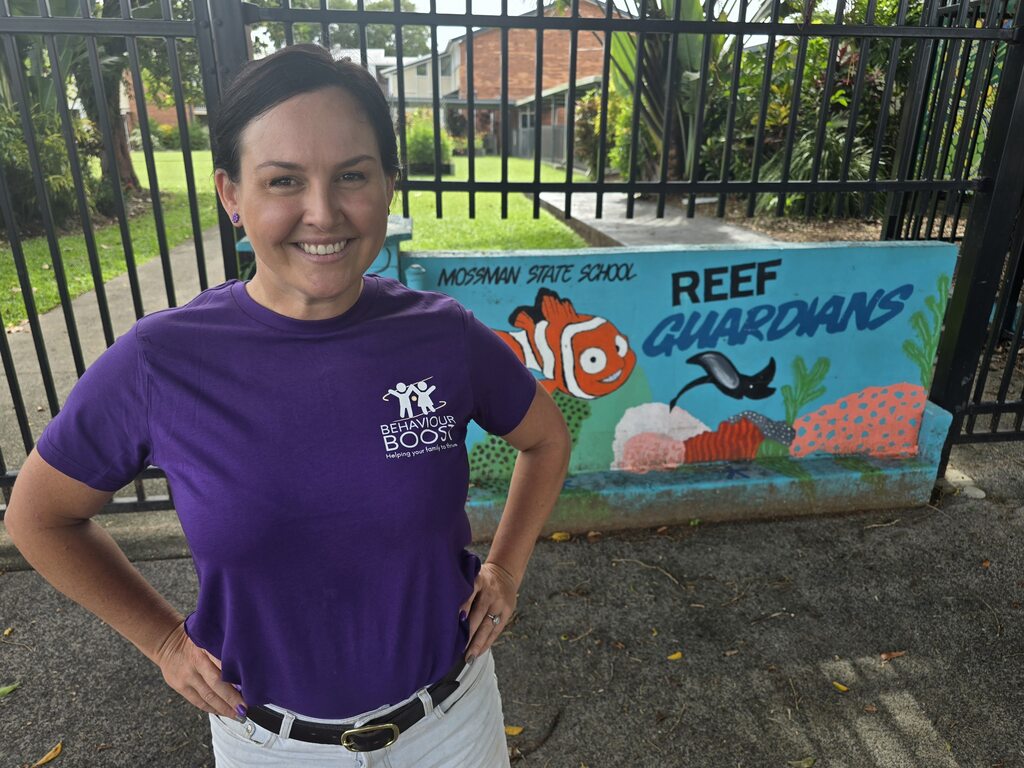
Is your child travelling a bit "wobbly"?
Behaviour Boost Advice for Parents

Do you remember what it was like to think like a teenager? Sometimes, I feel like I still do—except now, my experiences shape my decisions and sense of self in ways they didn’t back then. Growing up in the Douglas Shire, I completed both primary and high school here, and it’s incredible how quickly time has passed. A quick trip to Woolies or a scroll through social media reminds me of this, especially when I see old schoolmates now raising children of their own.
Yet, in so many ways, the childhood I knew here feels vastly different from the one young people experience today. The way they communicate, the apps they navigate effortlessly—small things that highlight a growing generational gap. It makes me wonder: what is it really like to be a young person in the Douglas Shire today?
The Weight Young People Carry
Over the past 18 months, young people in our community have faced extraordinary challenges that have tested their resilience and well-being. Cyclone Jasper and the subsequent flooding displaced families, destroyed homes, and upended lives. Some children suddenly found themselves moving in with extended family while their parents rebuilt—or, in some cases, cramming into motorhomes while still trying to attend school. For some, this remains their reality more than a year later.
Financial pressures have also increased, first from the disaster itself and then from the impact on tourism and the closure of the Mossman Mill. Our local Bama (Aboriginal) families have endured multiple unexpected losses in a short time. These events don’t simply pass by without consequence—they leave emotional imprints that can deeply affect a child’s mental well-being.
Signs Your Child May Need Support
As a professional working with young people, I see firsthand how these stressors manifest. Some children are withdrawing, struggling with anxiety, or reacting disproportionately to events. Nationally, more and more young people are using gaming as an escape—immersing themselves in online worlds to dissociate from reality. School avoidance is another growing concern, with some children finding it too overwhelming to face their peers or academic responsibilities.
There is a lot weighing on our young people right now, and they need extra support from the adults in their lives. Some signs to look out for include:
- Increased anxiety or excessive worrying
- Trouble sleeping or persistent fatigue
- Loss of interest in activities they once enjoyed
- Reluctance to go to school or engage in social activities
- Spending excessive time gaming or on social media as a form of escape
- Expressing feelings of hopelessness or making negative comments about themselves.
What You Can Do?
If you’ve noticed these signs, it’s natural to feel concerned—but what truly matters is how we respond. Seeking support doesn’t mean something is ‘wrong’ with your child; rather, it’s about tuning in and helping them develop the tools to navigate their challenges.
Young people look to us for emotional cues, so it’s important to be mindful of our own stress and how we communicate it. Simple, reassuring statements like, “Yes, things have been stressful, but we’re working through it together,” help keep the dialogue open, allowing space for even the tough conversations.
Whether it’s speaking with a trusted teacher, connecting with a local youth service, or seeking professional support from a counsellor, early intervention can make all the difference.
We can’t shield our kids from life’s challenges, but we can equip them with the support they need to cope. If you feel like your child is struggling, trust your instincts. A conversation today could be the first step in helping them find solid ground again.
Support public interest journalism
Help us to continue covering local stories that matter. Please consider supporting below.